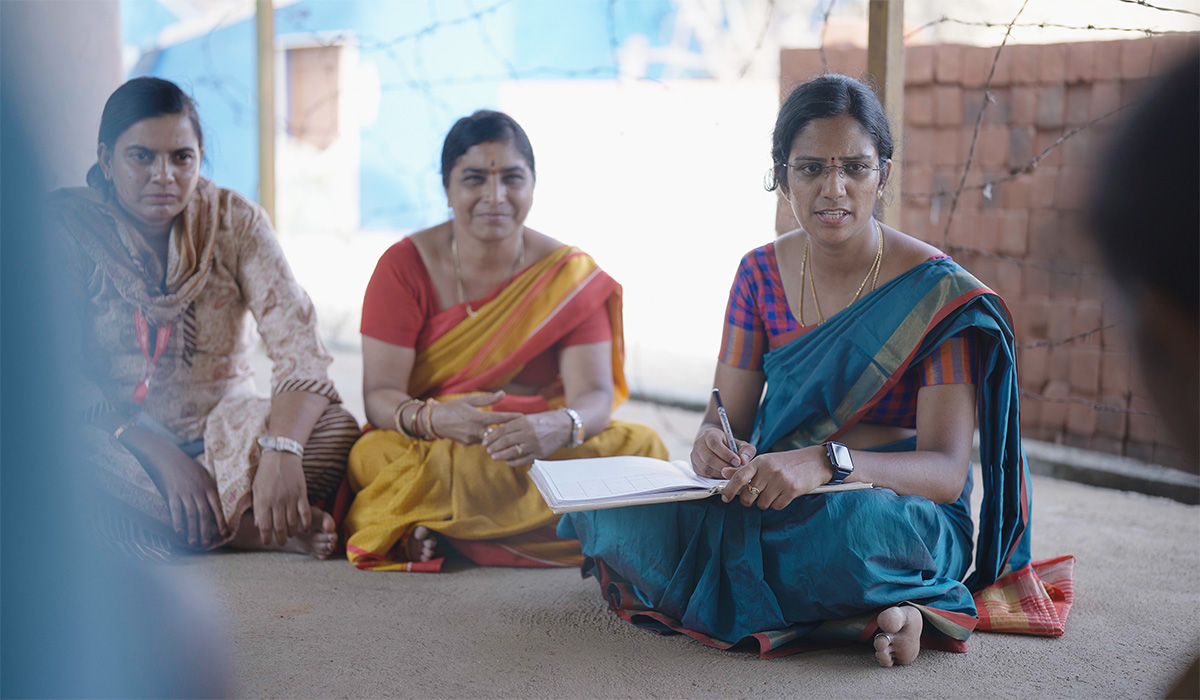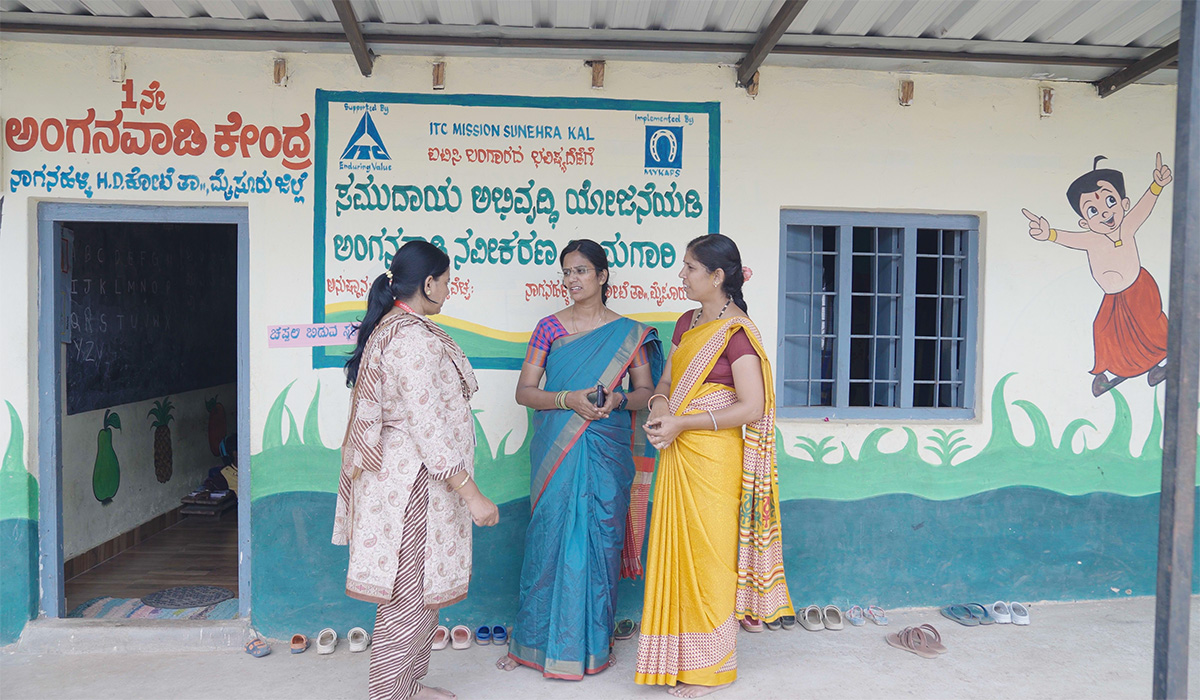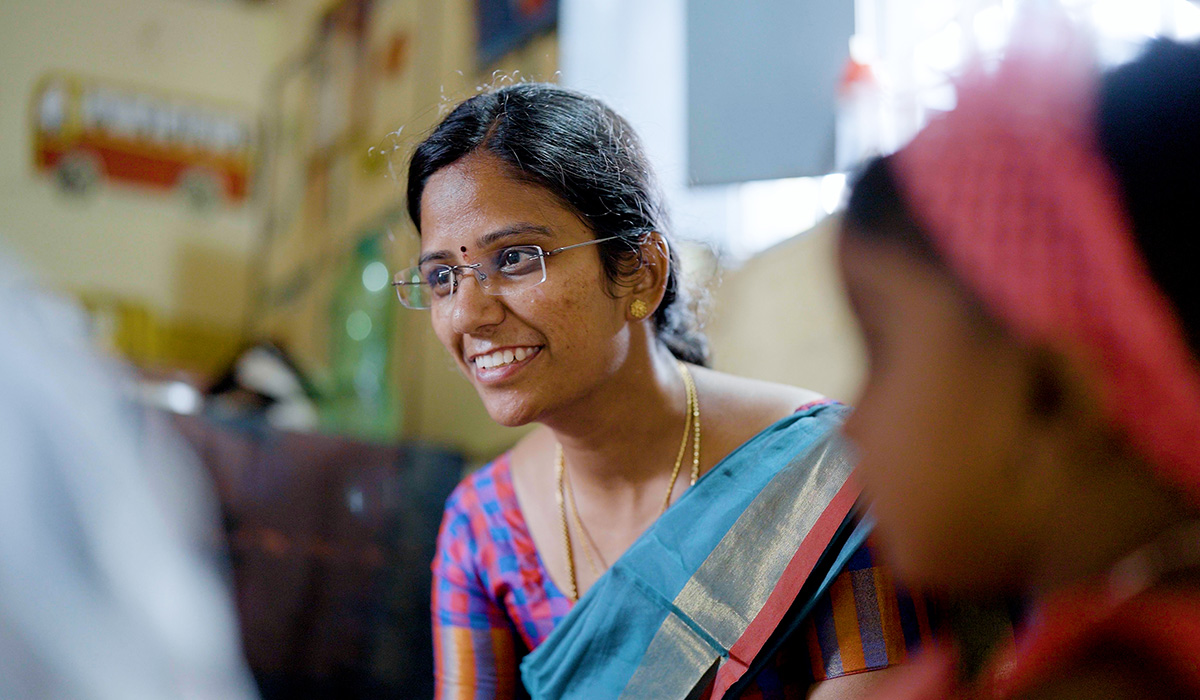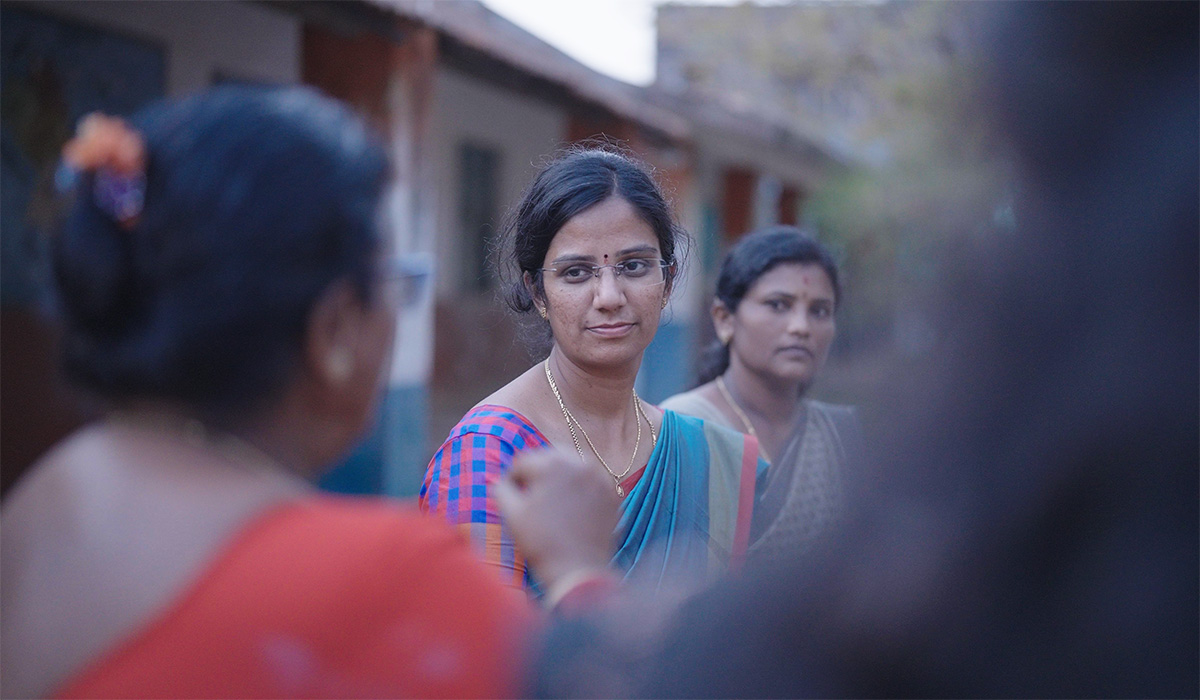In Karnataka’s dense forests, where tribal communities live in isolation and child marriages threaten young girls, Rajitha N stands as a beacon of change. As an Anganwadi supervisor overseeing 90 centers across a challenging 50-kilometer radius, she ensures essential nutrition, healthcare, and early childhood education reach India’s most vulnerable communities.
Without a formal background in ICDS pre-education methods, Rajitha manages centers scattered across remote forest regions while navigating caste tensions, community distrust, and entrenched social practices. Through relationship-building and unwavering commitment, she has transformed seemingly insurmountable obstacles into opportunities for meaningful change.
Q: Can you tell us about your background and what motivated you to choose this career?
Rajitha: In my family, I have my parents, elder brother, and myself. My father is a farmer with three acres, but we had a difficult childhood. While our extended family was educated and financially stable, we struggled and didn’t receive respect from family or society.
These hardships made my brother and me realise we needed to change our situation. We were determined to earn respect through good jobs and our own efforts. During pre-university, I was inspired by Mother Teresa and wanted to be a nurse, but my mother said it was too risky. I felt strongly about doing social service, but I believed that to help anyone economically, I first needed to become independent myself.
Q: How did you navigate personal choices and societal expectations?
Rajitha: Initially, I never wanted to marry because I felt a husband and in-laws would expect me to “sit at home, cook, and take care of the house.” I wondered who would encourage my social service career. I wanted to adopt a child, care for my parents, and run an orphanage.
After graduation, my mother fell sick, and I cared for her continuously for three years. During this time, I completed my MA through correspondence and started job hunting. I got selected for a court clerical job in 2018 and met my husband then. I told him, “I have to do social service—that’s my passion.” He understood and said, “You carry on with your dream.” That’s how we got married. I became an Anganwadi Supervisor in 2019.

Q: What challenges did you face when you started this journey? Also, what are some of the hidden or less visible challenges Anganwadi workers face—both within the system and in their own communities?
Rajitha: When I started, the Anganwadi workers I worked with weren’t well educated. They had studied only until 4th to 7th grade and had a “this much is enough” mentality. They were content and didn’t want to improve. Older workers were set in their ways, saying, “This is how we have been working, and this is how we will work.”
Workers interacted harshly with mothers and the community, preventing trust-building. Their limited education resulted in narrow perspectives, failing to create welcoming environments children needed. There’s also a widespread misconception that Anganwadi workers don’t do meaningful work, which leads to us being assigned additional responsibilities like election duties and surveys, compromising our core work of caring for children.
Another significant challenge is that all Anganwadi workers are recruited locally. Living and working in the same community for years creates both positive and strained relationships. People with personal grudges or jealousy often create deliberate obstacles.
For example, the supply chain for essential rations is frequently disrupted. While the standard delivery cycle should take 20 days, supplies often don’t reach Anganwadi centers for 23-24 days. By then, insects have infested items like broken wheat, rendering them unusable. These delays appear to be intentionally orchestrated by individuals seeking to undermine us.
The situation is further complicated by social media. Even minor issues—which can occur in any workplace—are now recorded and posted online, creating public embarrassment and additional pressure on us workers.

Q: How do you build relationships with your colleagues and communities?
Rajitha: To work effectively with anyone, you have to be like family—you can’t be an outsider telling them “you do this, you do that.” I call everyone “akka” (sister) or “anna” (brother) and treat everybody as equals. When you talk to them as a family member, they get the feeling that “she’s one of us,” and then there’s a chance they will listen to you.
It is also a fact that caste issues exist among workers, but I tackle them by treating everybody equally. I give them the sense that “you can approach me whenever you have a problem.” Whenever possible, I help them financially too. This family-like approach helps me address both resistance to new methods and social divisions.
Q: How do you advocate for girls’ education?
Rajitha: When I visit families, I tell them: “You know, I have come to your house and you’re calling me ‘ma’am’ and giving me so much respect. Similarly, if your girl studies and becomes well educated, she will also stand on her own feet and get a good job. But if you get your child married very early, she’ll end up doing the same farming work. Today, because I’m well educated, I can take care of my own parents and give them money. Try to educate the child instead of pushing her into early marriage.”

Q: Can you share a time when you faced resistance from the community while trying to intervene in a sensitive issue? How did you navigate it?
Rajitha: During the first COVID wave in 2020, I received information about a potential underage marriage in a remote community. When I arrived and inquired, the community members surrounded me, demanding to know who had given me this information. For three hours, they questioned me intensely in the afternoon heat. I was alone and felt overwhelmed, so I contacted my Child Development Project Officer (CDPO) for guidance, who advised calling the police.
Once I made that call, the community leaders provided a written statement confirming no underage marriage was taking place. This experience reminded me that lasting change takes patience, trust, and persistence. Since then, I’ve focused on building relationships within the community—listening more and involving the right people at the right time. Every time we prevent a child marriage or support a family through a tough decision, it reinforces why this work is important. Change may be slow, but it’s possible—one child, one family, one step at a time.











